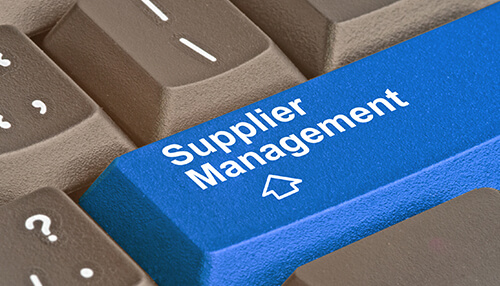Supplier management services usually include four parts: new supplier development, daily supplier management of batch suppliers, supplier evaluation, and supplier audit.
New supplier development
The development of new suppliers is mainly based on the company’s development plan and the specific conditions of existing suppliers, selecting new suppliers with excellent comprehensive performance and in line with the company’s strategy from the market to meet the company’s future development needs.
The new supplier development mainly includes the following:
1. Work with relevant departments to find and identify potential suppliers in the market that meet the company’s development needs;
2. Promote potential suppliers to complete the preliminary quality planning and confirm the compliance of the provided samples;
3. Arrange for the supplier to conduct small batch trial production upon confirming sample conformity to technical and quality requirements. During trial production, assess supplier processing capabilities for ensuring continuous and stable production with defined operation processes and standards.
4. After confirming that the process capability meets the requirements and the operation process and execution standards have been solidified, the supplier can be approved to enter the batch stage after being reviewed by the relevant departments of the company.
The sample and small batch confirmation process are critical while developing new suppliers. The customer and the supplier must clarify detailed and specific product technology and quality requirements and solidify the supplier’s subsequent production process and implementation standards to ensure that products that meet the company’s requirements can be continuously and stably provided after mass production.
Daily management of bulk suppliers
The daily management of batch suppliers is the content with the largest proportion of the daily workload of supplier management and contract manufacturing solutions which mainly includes the following links:
1. Regularly collect supplier product quality data, conduct summary analysis, and find quality anomalies and possible hidden production variations;
2. Provide prompt feedback on quality issues and production variations, collaborating with suppliers to identify root causes and ensure follow-up actions.
3. In response to quality anomalies and production variations, push suppliers to draw inferences from one example and make continuous improvements;
4. Organize relevant departments to review the change application submitted by the supplier;
5. When major quality problems occur, joint suppliers will respond promptly and deal with them quickly;
6. If hidden quality or use risks are discovered, implement control measures promptly, such as breakpoint control or controlled delivery.
7. Through the daily management of suppliers, it is possible to find out the supplier’s product anomalies and production variations in time, identify key risks that affect product quality, and prevent losses to the company.
Supplier evaluation
Regularly organize relevant departments of the company to participate, conduct a multi-dimensional comprehensive evaluation of suppliers, promote excellent suppliers, identify risk suppliers, and provide a reference for the company’s follow-up procurement planning.
Supplier audit
Conducting a supplier audit aids in assessing the supplier’s process capability and fostering quality improvement at the process source. Supplier audits usually includes:
1. Regularly review key suppliers to judge whether the supplier’s process capability meets the company’s requirements;
2. Review new suppliers who are in the stage of small batch trial production, determine whether the supplier conducts small batch trial production according to the preliminary quality plan, and judge whether the supplier’s process capability meets the company’s requirements;
3. When the supplier has significant quality problems, review the supplier, find the root cause of the problem, confirm the specific improvement situation, and re-evaluate whether the supplier’s process capability after the introduction of the improvement meets the company’s requirements. At this time, the audit is primarily on-site supervision;
4. Review new suppliers who are in the stage of small batch trial production, determine whether the supplier conducts small batch trial production according to the preliminary quality plan, and judge whether the supplier’s process capability meets the company’s requirements;
5. When the supplier management has significant quality problems, review the supplier, find the root cause of the problem, confirm the specific improvement situation, and re-evaluate whether the supplier’s process capability after the introduction of the improvement meets the company’s requirements. At this time, the audit is primarily on-site supervision;
6. Conduct on-site confirmation of significant changes of suppliers, and judge whether the supplier’s process capability still meets the company’s requirements after the change;
7. Through the supplier audit, you can gain a deeper understanding of the product manufacturing and management process, identify process risks, and ensure that the supplier’s process capabilities continue to meet the company’s requirements.
The audit discovered non-conforming risk items that don’t impact quality. Prompt rectification by the supplier is needed.
The above is the main content of the supplier management work. In the future, I will continue to share with you the executor of this work, the supplier quality management engineer – SQE.



